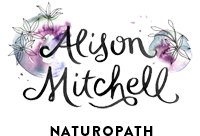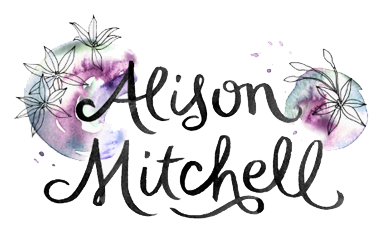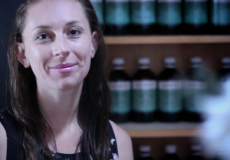Andropause – Grumpy Old Man Syndrome
WHAT IS ANDROPAUSE?
It is both scientifically documented and socially accepted that when a woman reaches her mid 40’s to 50’s, she will experience “change of life” or menopause. But did you know that a similar “change of life” can also affect men?
This phenomenon goes by many names: testosterone deficiency syndrome, male menopause, andropause or Partial Androgen Deficiency in Ageing Men (PADAM). This condition affects every male beginning from roughly the age of 40 to varying degrees, however it is a condition that very few people know about.
Colloquially, men experience a midlife crisis and may eventually develop ‘grumpy old man’ syndrome. These somewhat derogative notions are well entrenched in our un¬derstanding of male behaviour. Now at last, we have a medical condition to make sense of it all.
Androgens (Testosterone) peak at 20 and are relatively stable until 30-40, and then they slowly begin to decline. Unlike menopause which leads to a sudden withdrawal of progesterone and a steep decline in oestrogen, testosterone tapers off more gradually but its affects are profound.
Andropause, like Menopause is a normal part of aging although some men who experience this often experience negative symptoms. A common experience is a feeling that they are losing their sense of self.
Men who experience Andropause often feel they have no-one to talk to about this condition. There is a huge lack of awareness of this condition, and more awareness and open discussion about this can help men to realise they haven’t just become a ‘grumpy old man’, that they are not alone, and that something can be done about it.

SYMPTOMS
While women are aware of the approach of menopause because of the cessation of their periods, there is no clear-cut signal for the arrival of Andropause. The condition develops gradually, often resulting in a lack of awareness and diagnosis.
Andropause is responsible for a variety of symptoms such as:
- decreased muscle mass and strength
- decreased bone mass
- decreased libido and virility
- erectile dysfunction
- lower energy
- depressive mood
- anxiety
- insomnia
- difficulty in concentrating, and memory impairment
- hot flushes 1
While not all men experience the symptoms of andropause (just as not all women have difficulty with menopause) if you experience any of the above symptoms it is worthwhile to get your testosterone levels checked to see if your hormone changes are severe (keep reading for more information about testing). If your levels are too low, not only could you experience some of the above symptoms, which are uncomfortable, but decreased testosterone levels are associated with increased risks of osteoporosis, metabolic syndrome/insulin resistance, type 2 diabetes and increased mortality. 2
Keeping this in mind, it makes sense that in order to protect yourself from diabetes, osteoporosis and heart disease as you get older, it is important to keep your testosterone levels healthy.
WHAT ABOUT THE PROSTATE?
One thing you need to know is that testosterone does not cause prostate disease – it is a poorly metabolised form of testosterone called Dihydrotestosterone (DHT) that does! If testosterone caused prostate disease and made you lose your hair, don’t you think that every 20 year old male would be bald? All hormones (including the female hormones) go through several pathways in the body to get to their end form, and it is when problems occur in these pathways (such as if a particular enzyme is missing) that hormones can wreak havoc.
According to the author of a 2009 study that analysed the connection between treating low testosterone and cancer risk: “To date, as documented in many reviews on the subject, nothing has been found to support the evidence that restoring testosterone levels within normal range increase the incidence of prostate cancer. In our experience, during a long-term clinical study including 200 hypogonadal patients receiving a patch of testosterone, 50 patients ended 5 years of treatment and no prostate cancer have been reported.” 3
TESTOSTERONE AND CHOLESTEROL
Testosterone is a steroid hormone, and this is derived in the body from cholesterol. There are several steps involved in making hormones in the body which require certain vitamins and minerals at each stage. However it all starts with the ‘mother hormone’, cholesterol.
We actually need cholesterol to make hormones and in some cases the body will increase its production of cholesterol in response to low hormone levels. It certainly makes you think… Is cholesterol rising because of hormone deficiencies? Does lowering cholesterol with medications result in a drop in our ability to make hormones?
There is much that can be said about cholesterol and the best way to manage it, and this goes beyond the scope of this article. If you or your man has problems with cholesterol, consider that andropause might be contributing to it. Similarly if you or your man is taking cholesterol lowering medication over a long period of time, watch out for changes in hormone levels. As this can be a much more complicated issue, always discuss concerns and treatment with your health care practitioner.
TESTING FOR ANDROPAUSE
When testing for Andropause, the right test needs to be done. If ‘total testosterone’ only is checked, the results will invariably come back indicating that your testosterone levels are fine. This is because Andropause causes more of a man’s testosterone to be bound to Sex Hormone Binding Globulin (SHBG) which is not available for use in the body.
Only ‘free testosterone’ which is not bound to SHBG is available for use in the body, therefore ‘free testosterone’ is the only effective marker of Andropause. When screened for ‘free bioavailable testosterone’ a man with these symptoms will typically show a testosterone deficiency.
In the past the test for ‘free testosterone’ was not very accurate and the results were too variable. Today, there are excellent screening techniques which can be done with either blood or saliva. Saliva tests are non-invasive and are able to measure ‘free’ hormones (those not bound up by proteins in the blood). If you think that you or your man may have andropause, talk to your healthcare practitioner about getting tested.
TREATMENT
The first step is diagnosis which can be obtained with blood or saliva testing from your healthcare practitioner (see Saliva Testing under ‘Testing’ on http://www.naturopathnsw.com.au for more information).
The next step is treatment.
Naturopathic management of Andropause depends on the individual and the symptoms that they are experiencing, but core treatment focuses on supporting hormone balance and healthy conversion of testosterone pathways (making sure it doesn’t turn into the evil DHT).
Every pathway and process in the body consists of a biochemical reaction or equation. With that particular reaction nutrients are required at each and every single step of the way. A naturopath can use various nutrients and prescribe them to rectify and normalise those particular pathways. Vitamins and minerals, when used correctly and in the right form have the ability to support hormone levels and encourage them to convert correctly through their pathways.
There are some excellent herbs that when used in the right dose and way can support testosterone levels and allow men to regain their ‘sense of self’ (and also help bring their loved one a little sanity too). One of the main herbs used in this condition is Tribulus terrestris. It is very important to ensure good quality and that correct species is used with this herb, so ensure you are getting it from a herbalist who sources good quality medicines.
Naturopaths also aim to support general wellbeing and supporting the person as a whole. In the case of people with Andropause this may also include supporting mood, stress levels, cardiovascular function, healthy circulation, good liver and digestive health and lowering inflammation. When you see a Naturopath they will support you individually.
If you or your man may be struggling with andropause, seek help from your healthcare practitioner today.
Contact me to book a personal consultation
Works Cited
[1] M. Amore, F. Scarlatti, A. L. Quarta and P. Tagariello, “Partial androgen deficiency, depression and testosterone treatment in aging men,” Aging Clin Exp Res., pp. 21(1):1-8, 2009.
[2] B. B. Yeap, “Testosterone and ill-health in aging men.,” Nat Clin Pract Endocrinol Metab, pp. 5(2):133-21, 2009.
[3] J. P. Raynaud, “Testosterone deficiency syndrome: treatment and cancer risk.,” J Steroid Biochem Mol Biol, pp. 144(1-2):96-105, 2009.











Pingback: Men have their own version of menopause called IMS. Who knew?
Pingback: M2 Skin Care HP Skin Refinish 20% 50 ml. | Skin Care Tips